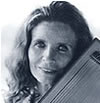
Henrietta, Texas, 1958: Eddy Frank and I were wandering in the halls of the courthouse. The ceilings are perhaps eighteen feet above us, the smell of old varnish and smoke clings to the walls.
There are two bathrooms. One says ‘White’ and one says ‘Colored’. The White bathroom is floored in tiny white hexagonal tiles, with ancient cracks across the floor. I do not know how the Colored bathroom is floored.
We had a reason for being there. A good reason.
However, now at 62 I cannot tell you the good reason we had at age 12, but I assure you that we had a darn good reason to be there, probably.
Perhaps it was the fire escape. This long metal tube was a wonderous slide. There was no ladder of course. Clasping the upper edges in your hands, step by step you ascended. Far taller than the kiddie’s slide at Lulu Johnson Grade School, at the top was a metal cage, just outside a lady’s window. Behind this window one sometimes found adults with angry faces; they yelled at us to get off the slide.
Slide down we did. Then labored again to the top. Standing in the metal cage, high above the courthouse lawn, you could see the death ledge clearly. A sandstone decorative ledge upon the outer face of the brick walls, with a great triangular chunk missing, about six feet away from our cage. The broken part was right above the metal-edge courthouse steps, so far below. Legend had it that a boy, perhaps like ourselves, had tried to walk along that ledge. Naturally, the ledge broke, throwing him to a horrible death on the steps below.
I know of no boy who decided to try it, though it was tempting.
So perhaps our good reason was the slide. Or maybe we were just taking a short cut. Or looking at the doors. Or visiting the White bathroom.
When we saw the key sticking out of a door, we stopped in our tracks.
Eddy Frank looked at me. I looked at Eddy Frank.
“What do you think we should do?” I asked. Eddy Frank, more thoughtful and less impulsive than myself, pondered.
“We could take it,” he said. I nodded quickly. By taking this key, we could make a smoke bomb of gunpowder. We could set it off in the middle of the night. Well, after dark, anyway. Wouldn’t that be a funny joke? Ha, ha, ha, ha, ha!
We resolved to take the key. Eddy Frank pulled it from the door. We high-tailed it out of there. Our plan was go to the Western Auto store across the street. We would have a copy made. We would return the original key to the doorway where we’d found it.
But no sooner inside Western Auto when Eddy Frank, looking over his shoulder through the big window, said, “Uh-oh.”
A woman and two men had come from the courthouse door, and, standing on the steps, were looking in every direction. Somehow, they were on to us!
Evading the salesman, who was drinking coffee anyway, we slipped out through the back door and into the alley. For the moment safe from prying eyes, we paced. What should we do?
We could be jailed. Fined. Thrown out of school. We could get spankings. We were in a world of trouble. Eddy Frank stopped.
“We’ve got to take it back,” he said. Frantic, I argued.
“No, no!” I shouted. “Just throw it away. Hide it in that pipe!” But Eddy Frank was stubborn. In the end, we marched back into the courthouse. Nobody now seemed to be looking for us.
We found a room with large musty books and a counter. Eddy Frank walked up, placed the key on the counter, and said to the lady who peered down at us.
“We found this key in the alley over there,” he said, “and we’ve brought it back.” She glared cruelly at us.
“Uh huh,” she said. “That’s the ladies room key. Someone was inside, and heard the whole thing.”
“OK, then,” said Eddy Frank.
Then we left, while the leaving was good.





